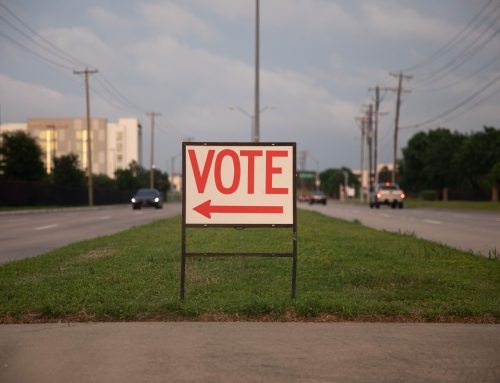When Jessica Martinez was young, her family didn’t always have enough food to eat. Now she’s helping others with the same challenges.
Martinez came with her mother to the Emanuel Community Center (ECC) food pantry, which distributed meals to working families in Old East Dallas. A group of Swedish immigrants had founded Emanuel Lutheran Church in 1906.
Martinez and her mother received food, and ECC was a safe place for her. “We used to come for the food and at Christmas. I liked it. It felt calm,” she says. But her mother’s limited English meant Martinez acted as a translator. She remembers having to look up every word in a dictionary, but the college student doesn’t need to anymore. “Now I am basically a dictionary for my mom,” she says.
But language isn’t all that has changed since the college freshman came to the community center with her mother. She now volunteers there once a week in between her classes at El Centro College. She interviews families to assess their needs. She asks about their food insecurity, income, family size and other demographic information.
The interview is part of a tool ECC implemented with UT Southwestern nutritionists. This includes generating unique shopping lists for individual families based on their needs and providing information about how to prepare the food.
Emanuel Community
Center serves
88 households each month and
253 individuals.
In March, the church received
7,930 pounds
of food.
That’s approximately
31 pounds
per person.
The average monthly
income per client household is $872.78.
ECC serves dozens of families a month in this way, but it is much more than a hand out. The institution has partnered with Crossroads Community Services to provide more fresh fruits and vegetables than one might expect at a food pantry. One Tuesday morning this fall, about 15 volunteers arranged large sacks of carrots, spring mix salad and other fruits while soul music played on the church’s back porch. “We wanted to expand what the food pantry could be,” says ECC Board Member and volunteer Andrea McCauley.
The center connects clients with Agape Clinic’s dental services and other medical assistance. It also coordinates with other area churches to optimize distribution. In addition to the perishable groceries distributed to the families, the group sends food to homebound elderly and packages that don’t need to be cooked or refrigerated to individuals experiencing homelessness.
The church’s neighborhood has changed several times since 1906, and the encroaching development is pricing out many of the lower-income families that used to populate the area. But ECC’s doors are open to everyone. The center also runs a back to school fair, summer reading program, neighborhood carnival and more. “We need to evolve to face the changing needs of the neighborhood,” McCauley says.
Pat McDonald has been a member in the church for more than 50 years and remembers when the food pantry started in the 1980s. Over the years, ECC has partnered with other churches such as Munger Place and Greenland Hills United Methodist Church to help provide volunteers and resources. She is a team leader for the food pantry and has been volunteering with her husband for 10 years. “We love being around people and we love helping people,” she says. “The big question is, ‘Where do we go from here?’ We want to help uplift and make life better for others.”
One place to go is the cooking class for community members, using the church’s kitchen to help teach families how to cook in a healthier manner.
As is often the case with volunteer organizations, those who give to the organization often get just as much out of the experience as the clients. Martinez remembers being on the other side of the conversation when she was little, and it helps her appreciate how fortunate she is.
“I feel responsible, more mature,” she says of her role as a volunteer. “There are people who have less than what I do, and I should do something for them. I plan to be here for many years.”





